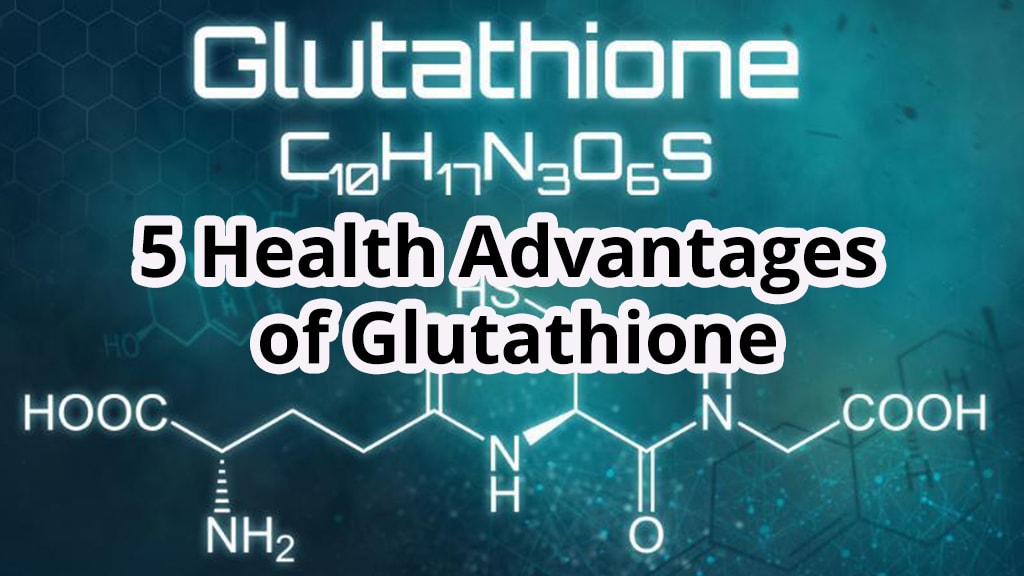Glutathione Benefits for Your Health and Body
Importance of Glutathione in your body

5 Health Advantages of Glutathione
The importance of glutathione in your body cannot be overstated. Healthy levels of s-acetyl glutathione provide anti-aging qualities as well as other health benefits.
The action of glutathione in these key biological processes is largely responsible for these health benefits:
• Function of enzymes and proteins
• Cysteine transport and storage
• Expression of genes
• Differentiation, signalling, and proliferation of cells
The antioxidant capabilities of s-acetyl glutathione, on the other hand, are the most potent services glutathione provides to your body. Free radicals and the oxidative damage they produce are fought by glutathione.
1. Glutathione Is an Antioxidant Powerhouse
Many people are aware of the chef's method of sprinkling lemon juice over fruit to prevent it from browning. Antioxidants work in the same way as lemon juice does. You may prevent your body from "browning" or "oxidising," which causes cell damage and ageing, by "sprinkling" it with antioxidants like glutathione on a regular basis. Antioxidants are the nutrient world's "anti-agers," fighting to protect your body from free radicals and the oxidative damage that they cause.
Your body uses fuel created from the food you eat to produce energy every time you eat, breathe, or move. However, just as a car's exhaust produces toxic by-products, your body's energy-producing activities produce a dangerous by-product: free radicals.
Free radicals are electron-deficient forms of oxygen that are highly reactive. They steal an electron from healthy cells and their DNA when they come into touch with regular molecules.
According to some estimates, your DNA receives 10,000 oxidative impacts per day. Antioxidants function to protect you from free radical damage.
The "master" antioxidant, glutathione, binds directly to oxidative chemicals that damage cell membranes, DNA, and energy synthesis. Superoxide, nitric oxide, carbon radicals, hydroperoxides, peroxynitrites, and lipid peroxides are among the oxidants that it directly neutralises.
Few other antioxidants can compare to glutathione's ability to protect against free radicals.
2. Detoxification and Glutathione
The importance of s-acetyl glutathione in the body's detoxification system cannot be overstated. However, extra glutathione from your food or supplementation can occasionally help your natural processes. If you are looking for Glutathione I will recommend you to buy santeva intense s-acetyl l-glutathione. Santeva Intense S-Acetyl Glutathione is three times more powerful as compared to other available glutathione oral supplements that contain Liposomal or Reduced Glutathione.
In three phases, here's how the detoxification mechanism works.
Toxins and xenobiotics are partially handled by specialised proteins called cytochromes inside mitochondria during Phase 1 detoxification.
Unfortunately, Phase 1 is an incomplete process that might result in the formation of harmful free radicals from poisons. These are not only harmful, but they can also deplete glutathione on their own, causing an imbalance in Phase 1 and Phase 2 activity.
Various enzymes operate directly on the toxins partially destroyed and metabolised in Phase 1 during Phase 2 detoxification. Toxins are neutralised by these enzymes using glutathione.
Toxins and xenobiotics are eliminated in Phase 3 detoxification. Toxins are primarily eliminated from the body through the kidneys (urine) and liver (bile).
Your body would be unable to efficiently neutralise and remove toxins without glutathione.
3. Energy and Glutathione
The mitochondria are responsible for energy synthesis in all cells (excluding red blood cells). Free radicals and the oxidative damage they produce are protected by glutathione. Glutathione is essential for energy production in this way.
Mitochondria that have been damaged slow down and produce less energy. Reduced biological function and efficiency are caused by the “diseased” mitochondria.
Damaged mitochondria produce even more free radicals, exacerbating the problem. As a result, these free radicals induce further mitochondrial damage, resulting in a vicious cycle of decreased energy and more damage.
GSH binds to these free radicals and lowers oxidative stress throughout the cell, not just in the mitochondria.
4. Skin Benefits of Glutathione
Many people want perfect, youthful skin, whether they have acne, wrinkles, dryness, eczema, or swollen eyes. Glutathione, according to science, is an excellent solution.
Fortunately, you don't have to break the bank to restore your skin's young and vitality. From the inside out, you can solve the problem. Glutathione allows cells to repair and regenerate themselves.
Glutathione has been shown to reduce wrinkles and promote skin suppleness in addition to decreasing melanin (pigmentation) in the skin.
Glutathione affects skin pigment production by blocking tyrosinase, a melanin-producing enzyme.
Both GSH and GSSG were found to have a skin-lightening effect in one study, however it took a few weeks to show. Because the effect on pigmentation is temporary, you'll need to keep utilising glutathione to keep the skin lightening effect going.
The usage of glutathione resulted in skin whitening, according to a scientific evaluation of various studies.
Psoriasis has also been proven to be reduced by glutathione. Consumption of whey protein, which contains glutamyl cysteine, a precursor to GSH, enhanced glutathione levels in this clinical research.
Glutathione not only lightens skin, but it also improves suppleness and reduces wrinkles, according to the same studies.
5. Brain Health and Glutathione
What are the effects of low glutathione levels on the brain and mental health? Low glutathione levels have been linked to a decline in brain health.
It's fairly uncommon to encounter some forgetfulness or difficulties concentrating as we become older. These are just two examples of neurodegeneration, a condition in which our brain's neurons are damaged and eventually die.
As a result, we have "shrinking" brains that don't function to their full potential. While this is an inescapable part of growing older, it can be slowed or even reversed, with glutathione (GSH) playing a key role.
High levels of oxidative stress damage to the brain, as well as low levels of active glutathione (GSH), are found with accelerated neurodegenerative disorders such as Parkinson's disease and Alzheimer's disease. GSH can help to alleviate and slow the deterioration of brain tissue.
While these findings are encouraging, a three-month research including Alzheimer's patients who received intranasal GSH found that GSH and placebo had similar outcomes. The use of glutathione yielded favourable benefits. The placebo, on the other hand, had the same effect.
Other neurological disorders, such as Lyme disease, become weaker when your body's glutathione levels rise.
About the Creator
sam parkin
I am I Top Blog Writer, Have written blog for many companies and news agencies.






Comments
There are no comments for this story
Be the first to respond and start the conversation.